E.J. Dionne Jr.: Assembly of Vipers
Surge or no, Iraq will remain engulfed in violence as long as those who control the death squads continue to exercise power in the country's National Assembly.WASHINGTON — Rep. Chet Edwards, a middle-of-the-road Texas Democrat who numbers President Bush among his constituents, did not judge the commander in chief’s words about Iraq on Wednesday night through the lens of his party affiliation or personal predispositions.
His standard was set by an Army officer who sent the congressman a powerfully honest, thoughtful and sophisticated 3,800-word memo based on the soldier’s experiences in Iraq.
With eloquence and urgency, the officer — Edwards said he had agreed not to disclose his identity — showed how the most important battles in Iraq are not military but political. The officer worries that, despite the heroic efforts of our troops, this aspect of the mission is not going well.
After receiving the soldier’s permission, Edwards shared the memo with me on the day of the president’s speech. The congressman was not trying to score any political points, especially since his informant accepts the goals of the war and writes not a critical word about the president.
Rather, Edwards, who chairs the Appropriations subcommittee that deals with military construction and veterans affairs and represented Fort Hood for 13 years, believes that “younger soldiers, both commissioned and noncommissioned,” can often provide more candid testimony than higher-ups constrained in their ability to present “bad news.”
For this officer, winning entails getting the politics right in Iraq at both the local and national levels. Locally, he says, our military has enjoyed considerable success. But he’s worried about the will and capacity of Iraqi Prime Minister Nouri al-Maliki to take on the Shiite militias.
“Our real goal,” he writes, “was to persuade our Iraqi friends and allies to actively and publicly support us … to help us tip the balance of public opinion in our favor.” That meant helping them with security and “civil works projects” and giving them “prestige by showing publicly that our commander listened to their advice.”
Then these shrewd words: “We discovered that we were not fighting a military campaign, but a political campaign — not too different from what a small town mayor might do to win re-election back in the U.S. … Fighting terrorists was only something we did when needed, because it interfered with our political objectives. If we could ignore the terrorists, we were winning. If we had to stop our economic and political activities in order to fight terrorists, they were winning.”
The core problem, the officer said, lay in the unwillingness of Shiites in the Iraqi security forces to confront terror from their own side. “Most officers did a great job when facing Sunni-based insurgents,” he wrote. “In fact, we had to keep a close eye on most units to make sure they were not too heavy-handed against the Sunnis.”
On the other hand: “When we dealt with the Shia, especially the Mahdi militia, things got a lot more complicated. Many officers were reluctant to fight the Shia militias because they had a well-justified fear for the security of their family. I have seen senior Iraqi officers flat refuse to follow American soldiers in pursuit of Shia insurgents — even when those insurgents just killed their own soldiers.”
The trouble goes all the way to the top. “We will never reach any kind of acceptable political settlement as long as the Coalition and the Iraqi government allow legitimate political parties to hold seats in the National Assembly while they finance and maintain military auxiliary wings that attack and kill Iraqi and American soldiers. These parties have enough clout in PM Maliki’s administration to effectively block any major military operation against the militias. This is an impossible situation.
“I don’t have the expertise to comment on whether or not a temporary ‘troop surge’ is necessary,” he writes. “I can say, however, that a troop surge is pointless if we cannot set the political conditions beforehand that allow us to act freely against the militia.”
In other words, the success of Bush’s new plan hangs on whether he is right in putting our troops behind the idea that Maliki heads a “unity government” and not an administration actually dedicated to total Shiite dominance.
The officer concludes that he has “no idea how the American expedition in Iraq will end.”
“I doubt it will end well,” he writes. “But I do hope that the courage and civility of the American soldiers who fought there will not be forgotten both here and in Iraq.” Amen.
If Iraq does not end well, our men and women in uniform will not get the blame. The fault will lie with leaders in Washington who failed to face the politics of the situation as squarely as this soldier has.
E.J. Dionne Jr.’s e-mail address is postchat(at symbol)aol.com.
Copyright 2007, Washington Post Writers Group
Your support matters…Independent journalism is under threat and overshadowed by heavily funded mainstream media.
You can help level the playing field. Become a member.
Your tax-deductible contribution keeps us digging beneath the headlines to give you thought-provoking, investigative reporting and analysis that unearths what's really happening- without compromise.
Give today to support our courageous, independent journalists.

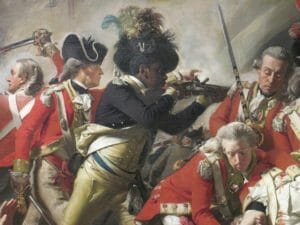
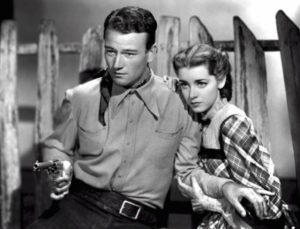
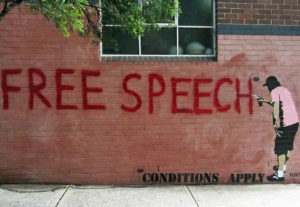
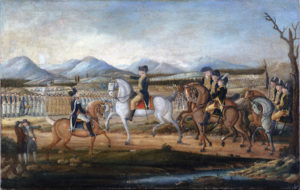
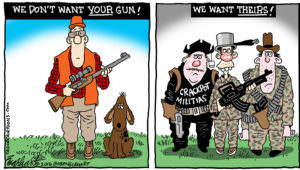
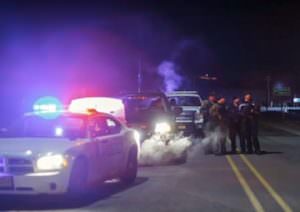


You need to be a supporter to comment.
There are currently no responses to this article.
Be the first to respond.